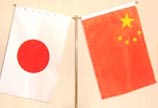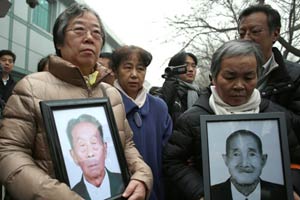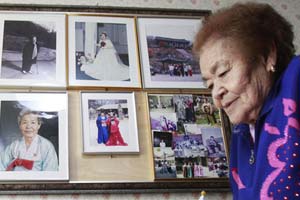Japan's relaxation of arms exports harms peace
(Xinhua) Updated: 2014-02-28 16:31
 |
Given the rise of hard-line rightists and extreme nationalism in Japan, the move is poised to further erode Japan's pacifist image, intensify regional mistrust and escalate international conflicts.
Self-imposed in 1967, Japan's "Three Principles on Arms Exports," which strictly limit its weaponry exports, helped the erstwhile fascist nation to regain some trust from its neighbors and the international community.
Yet Tokyo's zigzagging attitude on history has never restored its trustworthiness in full, and the recent rampancy of radical rightists on Japan's political landscape has further increased international suspicion about its true intentions.
Abe's late December visit to the Yasukuni Shrine, which honors Japan's war dead, including 14 Class-A WWII war criminals, and other provocative remarks and moves by other high-profile rightists have laid bare the Abe government's attempt to whitewash Japan's war record and overturn the postwar world order.
Also on the backdrop of the planned overhaul of the "three principles" are Abe's attempt to rewrite Japan's pacifist constitution and his country's mounting military spending.
If approved, the new three principles would give Tokyo the green light to export weapons to countries along important sea lanes, including those in the South China Sea.
Such a relaxation has rightfully triggered worries that it might embolden certain claimant countries to take more reckless actions in the already restless sea, which would in turn further undermine regional stability.
The proposed new rules state that the transfer of weapons will not be designed for "economic benefits" and that a US-style National Security Council will strictly screen the exports.
Unfortunately, the supervisory body will reportedly be led by Abe himself, designer of the overhaul, which would turn the so-called export-screening mechanism into an arrangement of "the wolf guarding the sheep."
After all, the revision of the "three principles" is part of Tokyo's attempt to break away from what it sees as the shackles of the past and build itself into a full-fledged military power.
But there is something the world needs to remember. A militarily restricted Japan led by a nationalistic prime minister has already degenerated into a troublemaker.
Thus it is not a far-fetched prediction that a militarily recovered Japan led by a history denier would become a nightmare both to the region and to the whole world at large.
The international community should not let that happen.
|
 |
 |
- More female officials caught in corruption
- Whampoa veterans recorded with glory
- Police bust 9 terrorist groups in Xinjiang
- Knife-wielding attackers seized in Xinjiang
- New regulation leads to drop in petitioned cases
- Hunan plant shut as probe into lead poisoning begins
- Police boost efforts to combat gambling
- Project offers jobs openings to legal experts
- Experts: Dog meat festival 'illegal'
- Nation looks to upgrade
pipeline networks






